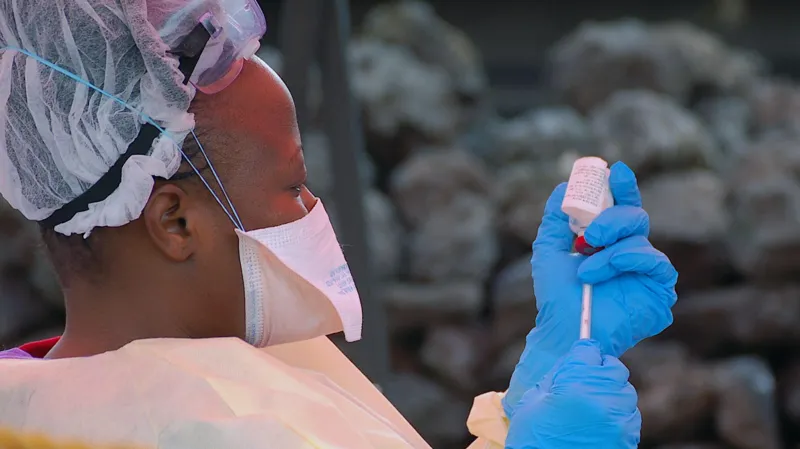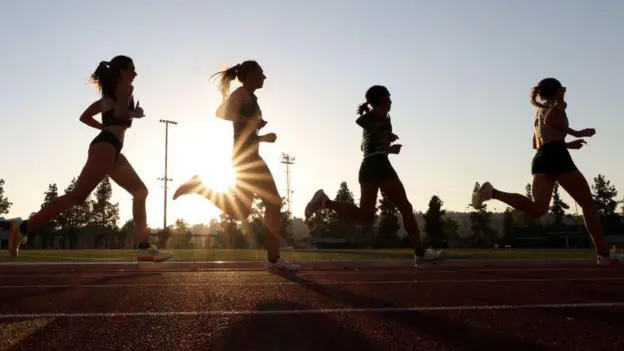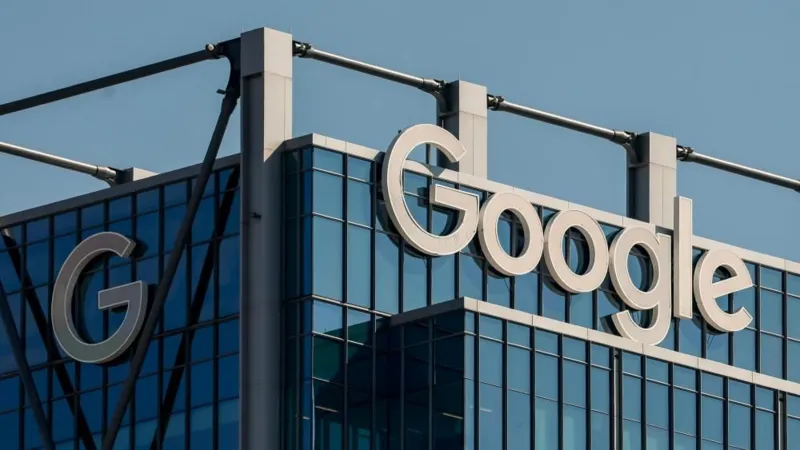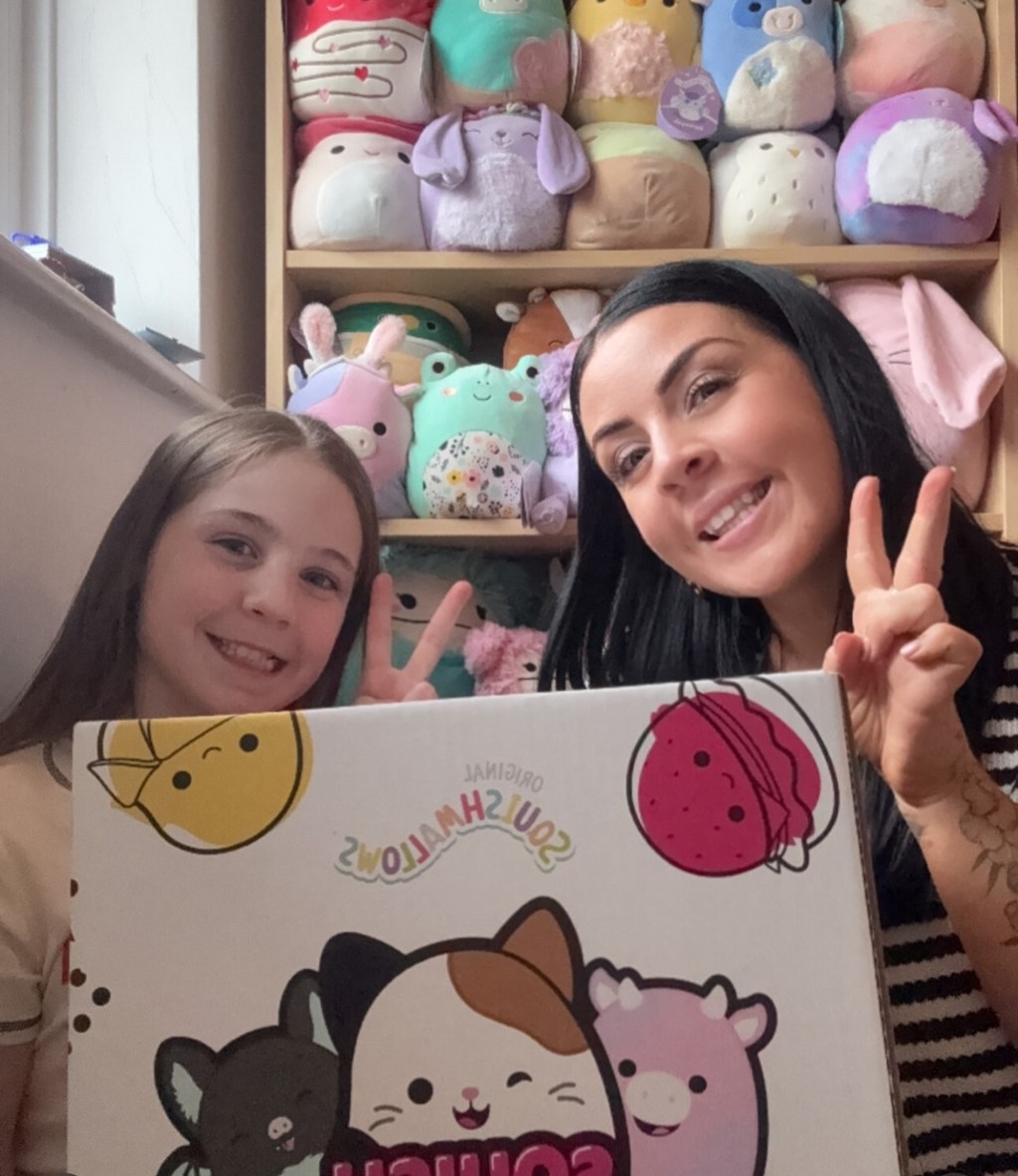US election campaign enters final week with race on a knife-edge
The race for the White House has entered its final week, with national and swing state polling showing the race between Kamala Harris and Donald Trump is incredibly close
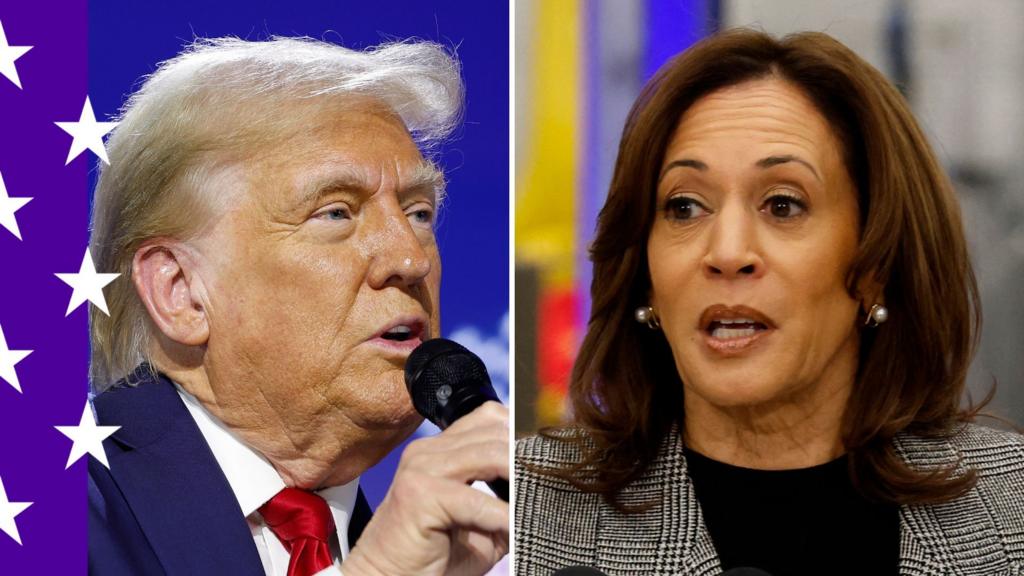
Former Trump White House official Steve Bannon released from prison
Unwavering Trump ally and far-right podcaster Steve Bannon has been released from prison, after serving a four-month sentence for defying a Congressional subpoena.
Bannon - who served as Donald Trump's chief of staff in the White House for seven months - was being kept at the Federal Correctional Institution in Danbury, Connecticut.
A jury found him guilty in 2022 of two counts of contempt of Congress for refusing to testify before a committee investigating the US Capitol riots on 6 January 2021, and for refusing to handover documents related to Trump's alleged effort to overturn the 2020 election results.
Trump lost the election against Joe Biden that year and has been indicted for related election fraud.
Shortly after Bannon's release, the New York Times reported Bannon saying: "I’m not broken, I’m empowered.
"If people think American politics has been divisive before, you haven’t seen anything."
Bannon is expected to hold a press conference in New York City this afternoon and return to his influential conservative daily podcast - the War Room - for its first post-jail episode.
A chance to make history for the South Asian community, says Democrat voter
Kamala Harris is the first US presidential candidate to come from South Asian heritage, and there are hopes it can inspire the sizeable South Asian population in the country to come out and vote.
“It’s going to be a new history that we get to talk about and experience,” Tanjina Islam tells BBC Asian Network News.
Tanjina is a Bangladeshi American who lives in Atlanta, Georgia, and is a DNC delegate. She has previously expressed doubts because of the party’s position on the Israel-Gaza war.
But come 5 November, she says she has no doubts about stopping another Donald Trump presidency, worried about what it could mean for Muslims like her..
“A part of the area I live, I’d say is more conservative," she explains.
“My mum’s experienced it, because she wears the hijab. And she’s been threatened that if Trump doesn’t get elected, they’ll come after her."
On a recent October evening on New York City’s Upper East Side, hundreds of influential Indian Americans mingled over cocktails to celebrate the Hindu festival of lights at the posh hotel The Pierre.
But while the invitation called for a Diwali celebration, the party was buzzing with excitement over the Indian American community’s latest political milestone: Kamala Harris becoming the first US presidential candidate of South Asian heritage to lead a major party ticket.
“You cannot be what you cannot see,” said Reshma Saujani, CEO of Girls Who Code and the first Indian American woman to run for US Congress in 2010, pointing out that so many South Asian girls see themselves in Harris.
The challenge for Harris is to channel that enthusiasm among a booming immigrant population that’s moved beyond the traditional South Asian strongholds of California and New York to battleground states like Georgia, Michigan and Pennsylvania.
In 2020, 71% of Indian Americans that were eligible to vote did, a 9% increase from 2016. And according to Karthick Ramakrishnan, co-founder of AAPI Data, Harris's candidacy could boost South Asian voter turnout to 75% among eligible voters.
Inside Trump's push to recruit volunteers in battleground Georgia
Dean Cottle knocks on doors for the Trump campaign every weekend, trying to convince less-motivated Republicans to vote
Every weekend, Dean Cottle knocks on his fellow Georgians’ doors to persuade them to vote for Donald Trump in the US election.
The long-time supporter of the former president is a “captain” in the Trump Force 47 programme, the campaign’s effort to turn thousands of battleground state supporters into an army of ground troops.
Trump Force 47’s website provides a list of volunteer opportunities like phone banks, virtual training, and canvasses in each of the key battleground states.
Dean Cottle signed up for the programme through a Facebook advert, then took a one-hour training course to become a “captain” at the local campaign office. An app directs him where to go in Fayette County, his home, then he travels “house to house, getting commitments from people”.
Why was Trump in Georgia and Harris in Michigan yesterday?
Both candidates were campaigning in key swing states yesterday, with Kamala Harris in Michigan and Donald Trump in Georgia.
As a reminder, seven states are likely to decide who becomes the next president. These are states which experts believe could plausibly be won by either Harris or Trump.
These are Arizona, Georgia, Michigan, Nevada, North Carolina, Pennsylvania and Wisconsin.
Georgia:
President Joe Biden won the state of 11 million people, which had long been a Republican stronghold, for the Democrats by 13,000 votes in 2020.
A third of Georgia's population is black, one of the country’s largest proportions by state.
It is believed that black voters were instrumental in Biden flipping the state in 2020, making him the first democrat to win it since Bill Clinton in 1992.
Despite backing Biden in 2020, the Great Lakes state has become symbolic of a nationwide backlash over Biden's support for Israel's war in Gaza.
This is because Michigan has the country’s largest proportion of Arab-Americans - a demographic whose support for Biden was in jeopardy over his stance on the conflict.
Harris has taken a harder tone on Israel, and some Gaza protesters have told the BBC they hope she will be more sympathetic to their cause. But others are still predicting her support could suffer over being associated with Biden as his vice-president.
Walz is running to be US vice-president - quite literally
Whether it's a high profile podcast appearance - like Trump's Joe Rogan interview - or a slightly left field TikTok, there's a focus on alternative media campaigning from both sides this election.
We've previously reported on how the Democrats are using content creators to push the Harris campaign, with more than 200 granted exclusive access to some of the party's biggest names at the Democratic National Convention.
Campaigning in New York last week, Tim Walz proved he's Kamala Harris' running mate in more ways than one.
Speaking to running influencer Kate Macz while jogging a mile around Central Park, Walz said the Democrat ticket is "running hard, trying to earn your vote".
In a TikTok published on Thursday - which received 3.7 million views in 24 hours - he spoke about his journey from Minnesota high-school teacher to VP nominee - admitting that running with Secret Service around him is "a little different".
He talked of policy priorities, such as "protecting reproductive rights, tackling gun violence and creating an economy for the middle class".
Some of his former students have been out campaigning for him, which he described as "the greatest thing you can have" as a former teacher.
Here's what the Trump campaign is doing today
While Kamala Harris is expected to deliver her “closing argument” at a rally today in Washington DC, Donald Trump will also launch the final week of his campaign at his Mar-a-Lago home in Florida.
The news conference, which will happen at 10:00 local time (14:00 GMT), will feature remarks an adviser has characterised as a prebuttal to Harris's speech, according to Reuters news agency.
The former president will also make an appearance at a community roundtable in south-east Pennsylvania at 14:30 local time (18:30 GMT), hosted by non-profit organisation Building America’s Future.
Later this evening, Trump will host a campaign rally in Allentown, Pennsylvania, at 22:00 GMT.
Pennsylvania is one of the seven battleground states in this election.
What could the presidential candidates do differently?
Amerciast logo showing a US flag with the text 'Americast' in the middle
With just one week to go until the election, Americast roleplays as campaign managers for the Trump and Harris teams.
Justin Webb, Sarah Smith and Marianna Spring look at how they should be handling the last days of their campaigns - who should they be targeting, where they should go, and what key messages should be in the last stretch before polling day.
You can listen to the latest episode of Americast here on BBC Sounds.
Ballot boxes used for early voting set on fire
Several states that allow early voting use dedicated ballot drop boxes.
On Monday, two of these boxes were set on fire in Vancouver, a small city in Washington state less than 10 miles (16km) from Portland in neighbouring Oregon. Hundreds of ballots were damaged.
In the south-east of Portland, an incendiary device was placed inside a drop box, according to local police, causing a small fire that damaged three ballots.
Officials said those who had deposited ballots should contact the local elections office and they hope these were “isolated incidents”.
Back in September, the US Department of Homeland Security warned that some social media users have been promoting the destruction and sabotage of the boxes ahead of the election.
Caution needed with interpreting early voter data
While people can vote early in person or by mail in most US states, officials are not allowed to begin counting ballots until election day on 5 November.
Because of this, there is a limited amount of data available - and it is hard to make any assumptions based solely on early votes.
But what we can say is there have been more than 47 million ballots already cast a week before the election, according to the University of Florida's Election Lab, external. Some data, such as votes according to party registration, is available for some states.
As of this morning, 39.5% of those who voted early are registered Democrats and 36.3% are registered Republicans.
These numbers only apply for states where party registration is available and so cover just under half of the total.
Differing groups of voters have also historically cast their ballots at different times and in varied ways, so it is important not to over-interpret the party registration numbers.
Harris to deliver closing speech on the Ellipse
Candidates are hosting their final campaign events throughout this week in a bid to win over key undecided voters.
Kamala Harris is delivering what her campaign have described as a "closing argument" this evening on the Ellipse in Washington DC - where Donald Trump held a rally on 6 January 2021 shortly before his supporters stormed the Capitol building.
Harris's event will be held at 20:00 local time (23:00 GMT) and is expected to bring in an audience of over 20,000 people.
Before that though, an interview with the vice-president recorded with radio host Charlamagne tha God for his Breakfast Club show will air at 11:00 GMT.
It comes days after her opponent Trump joined host Joe Rogan on his The Joe Rogan Experience for a three-hour interview.
Harris v Trump: Polls on a knife-edge
Kamala Harris has had a small lead over Donald Trump in the national polling averages since she entered the race at the end of July and she remains ahead, but only by a small margin.
The most recent numbers suggest Harris has 48% of the vote, with Trump at 47% - which is well within the margin of error for US election polling data.
National polls are a useful guide, but they are not necessarily an accurate way to predict the result of the election - that's largely because of the US electoral college system.
Because most states in the US nearly always vote for the same party, there are just a handful where both candidates stand a chance of winning. These are the places where the election will be won and lost and are known as battleground states or swing states.
Right now the polls are very tight in the seven states considered battlegrounds in this election and neither candidate has a decisive lead in any of them, according to the polling averages. Take a look at the latest numbers below:
Table showing latest polling averages in battleground states: Harris is leading by less than one percentage point in Michigan. Trump is ahead in Nevada and Pennsylvania by less than one percentage point; by one point in North Carolina; by two in Georgia and Arizona. They are tied in Wisconsin.
With one week to go, there is little to separate Harris and Trumps
We are officially into the final stretch of this incredibly hard-fought race for the White House.
One week from today, tens of millions of Americans will cast their ballots and decide who the next president will be.
More than 47 million people have already voted after making up their minds about which box their cross is going in.
With the opinion polls incredibly close and the race likely to come down to seven critical swing states, the coming days will be all about Donald Trump and Kamala Harris trying to win over undecided voters in that select group of places.
You can read more about which states will decide this election and check our poll tracker for the latest indicators about where the US might be heading.
Stay tuned throughout the day for the latest news and analysis.
Trump's push for Muslim voters worries Democrats
Donald Trump held an event with Muslim community leaders earlier this week in Michigan
Speaking in Philadelphia a short while ago, Barack Obama appealed to Muslims who are thinking about backing Donald Trump.
"If you're Muslim American and you're upset about what's happening in the Middle East, why would you put your faith in somebody who passed a Muslim Ban and repeatedly suggested that somehow you weren't part of our American community?" the former president asked the crowd.
Muslim Americans have reliably voted Democrat for years but the Biden administration's approach to the Middle East has cast doubt over that trend.
Trump has secured endorsements from some Muslim community figures, including Amer Ghalib, the mayor of Hamtramck - a small suburb of Detroit, Michigan, where about 60% of the population is Muslim.
When Trump first ran for president in 2016, he proposed a ban on immigration from predominantly Muslim countries. in 2024, his campaign believes Muslim voters could hold the key which unlocks crucial swing states like Michigan.
-BBC



